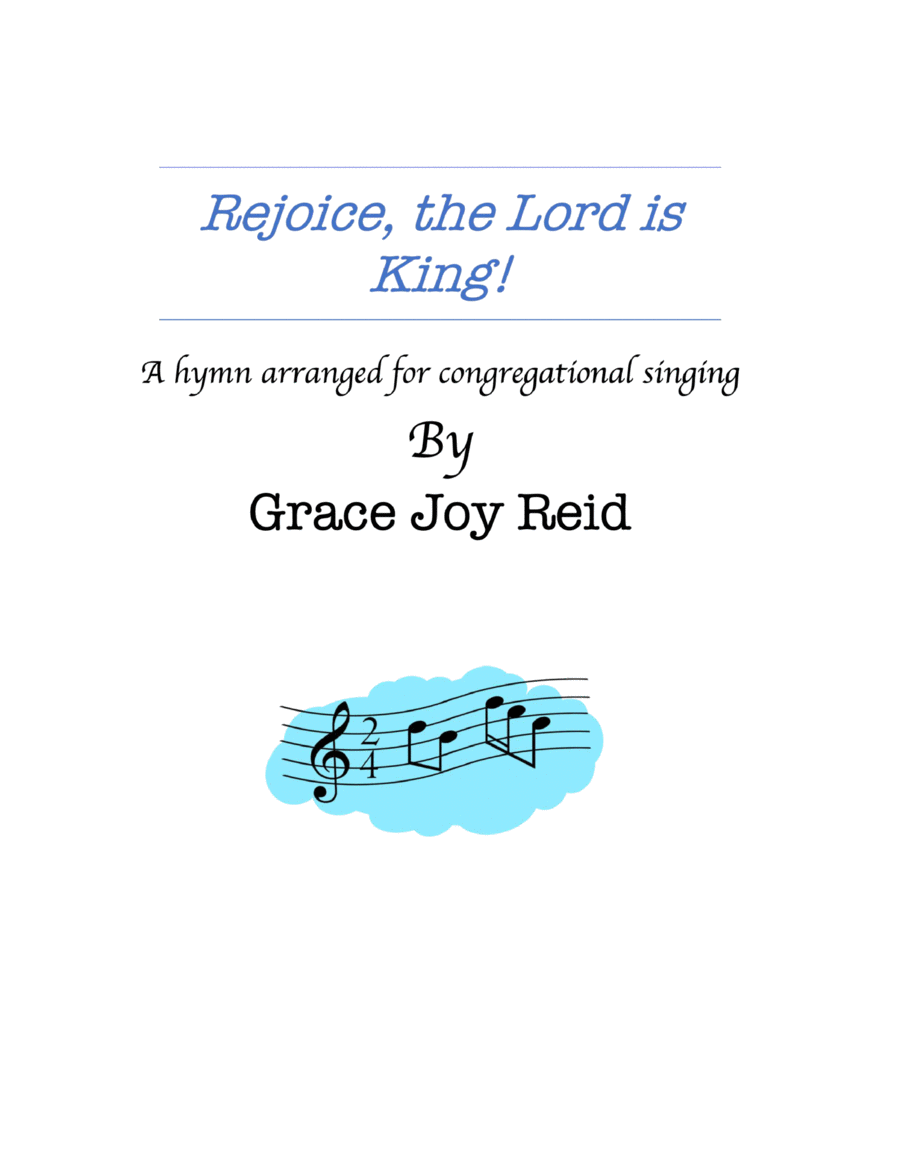Piano Solo - Level 3 - Digital Download SKU: A0.1005688 Composed by 1746, Charles Wesley, and Lyrics. Arranged by 1770, 2021, Grace Joy Reid, and John Darwall. Christian,Easter,Graduation,Sacred. Score. 4 pages. Creating Music Joy #6293813. Published by Creating Music Joy (A0.1005688). Rejoice, the Lord is King was originally written (lyrics) by Charles Wesley then arranged by John Darwall in 1770. In 2021, Grace Joy Reid has arranged this hymn for congregational singing.Lyrics:Rejoice, the Lord is King,Your Lord and King adore;Mortals, give thanks and sing,And triumph evermore;Lift up your heart, lift up your voice,Rejoice, again I say, rejoice!Jesus the Saviour reigns,The God of truth and love,When He had purged our stains,He took His seat above;Lift up your heart, lift up your voice,Rejoice, again I say rejoice!His kingdom cannot fail,He rules o'er earth and heaven;The keys of death and hellAre to our Jesus given;Lift up your heart, lift up your voice,Rejoice, again I say rejoice!He sits at God's right handTill all His foes submit,And bow to His command,And fall beneath His feet;Lift up your heart, lift up your voice;Rejoice, again I say, Rejoice!He all His foes shall quell,Shall all our sins destroy,And every bosom swellWith pure seraphic joy;Lift up your heart, lift up your voice,Rejoice, again I say, rejoice!Rejoice in glorious hope;Jesus the judge shall come,And take His servants upTo their eternal home;We soon shall hear the archangels voice,The trump of God shall sound, Rejoice!
